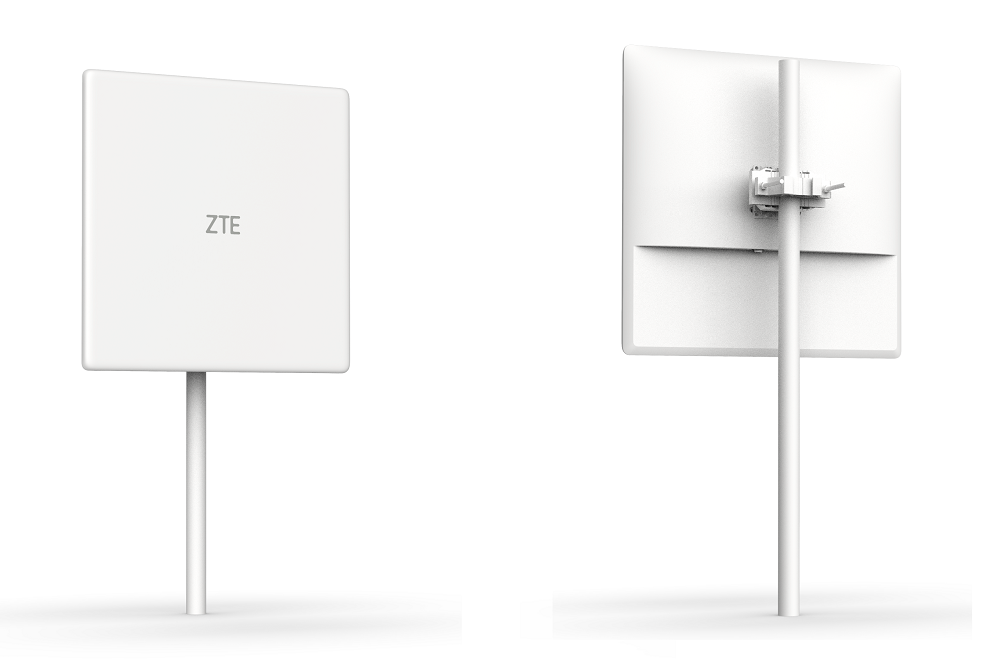ZTE Corporation has unveiled the second-generation Dynamic Cooperative Reconfigurable Intelligent Surface (Dynamic RIS 2.0) product on the eve of the Mobile World Congress (MWC) Shanghai 2023. This release aims to further drive the green evolution of 5G-A. Compared to its predecessor, Dynamic RIS 2.0 boasts significantly reduced specifications and power consumption, as well as more convenient deployment, marking a significant stride towards commercial implementation.
As an emerging technology, Reconfigurable Intelligent Surface (RIS) utilizes programmable, cost-effective two-dimensional metamaterials along with phase control components to achieve signal propagation, direction regulation, and interference suppression in three-dimensional space. Its primary goal is to establish an intelligent and controllable wireless environment, surpassing the limitations of traditional wireless communication.
Originally, RIS operated as a static surface, enhancing signal coverage at fixed points. However, the coverage provided by a single fixed beam was relatively limited and couldn’t adapt to dynamically distributed users. To address this, ZTE has introduced an innovative solution called Reconfigurable Intelligent Surface Dynamic Collaboration technology, which is built upon 5G base stations. This technology enables rapid scanning of multiple beams and real-time user tracking. By incorporating key techniques from 6G’s Reconfigurable Intelligent Surface advancements into 5G, it has become a pivotal technology for the new stage of 5G-A.
In 2021, ZTE successfully completed the initial phase of prototype verification for Static Reconfigurable Intelligent Surface (RIS) technology, exploring the potential of RIS in improving fixed-point coverage in 5G blind spots and areas with weak signals.
In February 2022, ZTE unveiled the first-generation Dynamic Cooperative Reconfigurable Intelligent Surface product, named RIS 1.0, at MWC 2022 in Barcelona.
In August 2022, ZTE achieved an industry milestone by successfully completing the prototype verification of Dynamic RIS technology. The verification results demonstrated that the cooperative beamforming technology between base stations and reconfigurable intelligent surfaces not only significantly enhances base station coverage but also facilitates seamless user connectivity in mobile scenarios. Moreover, the beam can be dynamically adjusted to accommodate diverse deployment scenarios.
ZTE continues to address critical challenges in RIS product development and key technologies. In 2023, they launched the dynamic RIS 2.0 model. Compared to its predecessor, the RIS 2.0 product offers significant advancements in terms of wide coverage distance, high user gain, and enhanced reliability.
Through the incorporation of new materials and an evolved architecture, dynamic RIS 2.0 products achieve an impressive 80% reduction in power consumption. The integrated design also contributes to a lighter and aesthetically pleasing appearance. Additionally, dynamic RIS 2.0 is designed for easy installation and adaptability to diverse environments, making deployment, management, and maintenance more streamlined.
According to Li Xiaotong, VP of ZTE and GM of RAN products, the launch of dynamic RIS 2.0 product serves the purpose of expanding network coverage in a cost-effective and energy-efficient manner. It also aims to address challenges associated with higher frequency bands, such as millimeter waves, which suffer from high propagation loss and penetration loss. Dynamic RIS 2.0 enables high and low-frequency co-site and co-coverage, thereby reducing construction and operation costs for high-frequency networks.
Moving forward, ZTE will continue collaborating with operators and industry partners to drive the evolution of RIS, transitioning it from technology research to practical deployment. ZTE aims to address real-world challenges in commercial networking, enhance innovation, and refine solutions for network collaboration and streamlined operation and maintenance processes. Furthermore, ZTE plans to expand the application of RIS to a wider range of fields. Leveraging the capabilities and boundaries of 5G-A, RIS will be combined with other advancements to realize the vision of enabling digital lives for individuals, empowering industries with digital intelligence, and building a digital society.












